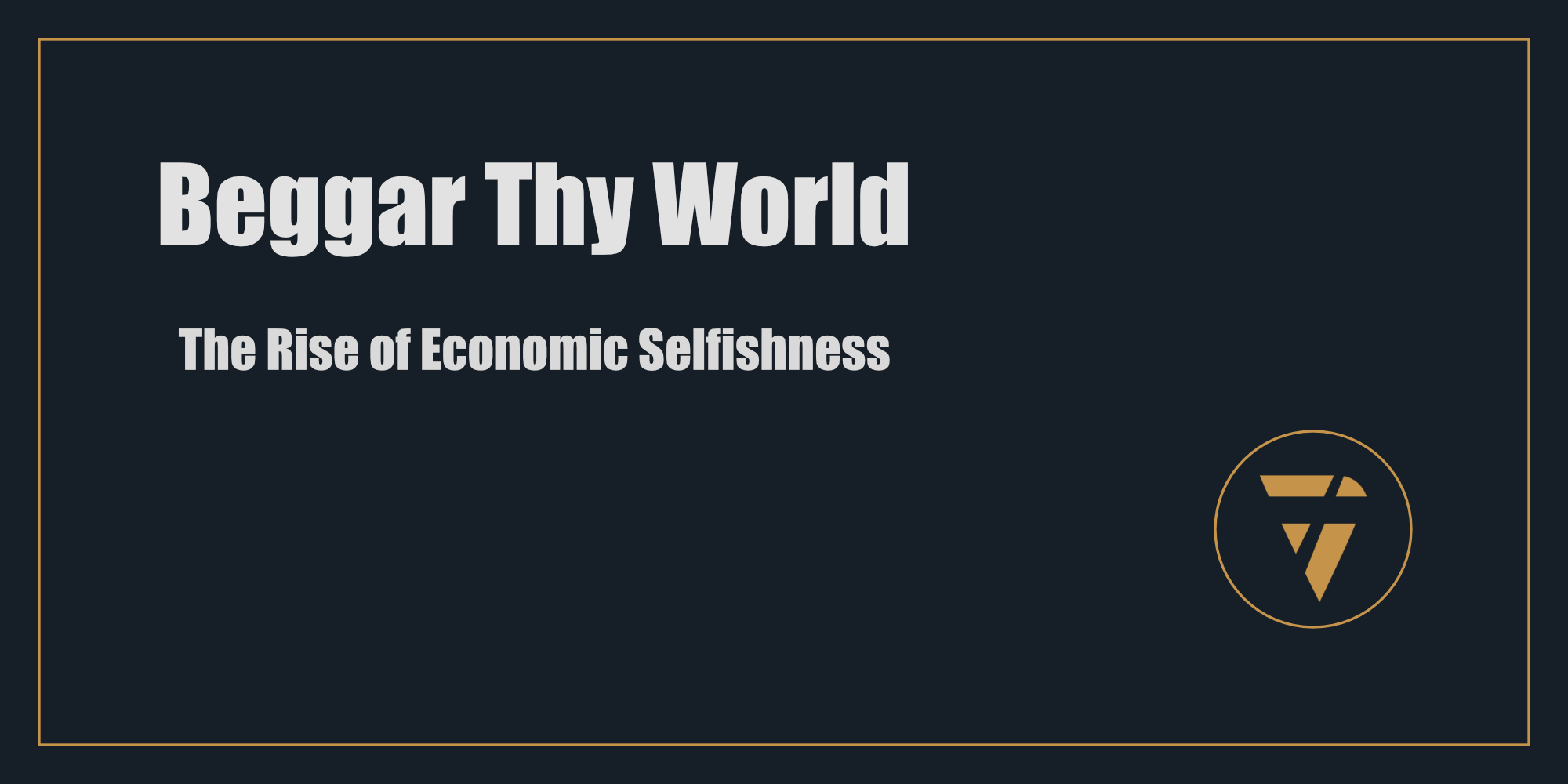Beggar Thy World
The Rise of Economic Selfishness

What happens when nations stop working together and start working only for themselves? Beggar Thy World signals a global shift where co-operation crumbles, and self-interest reigns supreme.
A Fractured Global Economy
The global economy has long relied on a delicate balance of co-operation and competition. Nations traded goods, shared resources, and tackled global challenges together, or at least tried to. But in 2025, that balance is breaking. The Beggar Thy World approach prioritizes national gain over global stability, creating a fractured and volatile system.
From protectionist trade policies to hoarding critical resources like energy and rare minerals, nations are retreating inward. This isn’t just a breakdown in collaboration, it’s a zero-sum mindset that threatens to upend global markets, exacerbate inequality, and leave the most vulnerable nations on the brink of collapse.
The Roots of Economic Nationalism
The Beggar Thy World trend stems from several interwoven factors:
- Resource Scarcity:
Climate change, population growth, and supply chain disruptions have heightened competition for vital resources like food, water, and energy. Nations prioritize their own needs, often at the expense of others. - Geopolitical Tensions:
Rivalries between major powers—particularly the US and China—create a fragmented global economy where alliances are transactional, and co-operation is limited. - Eroding Global Institutions:
Institutions like the World Trade Organization (WTO) and the United Nations are increasingly sidelined as nations pursue unilateral policies, ignoring frameworks designed to manage global issues. - Pandemic Fallout:
The COVID-19 pandemic accelerated economic nationalism, as nations raced to secure vaccines, medical supplies, and trade advantages, setting a precedent for self-serving behaviour.
These factors have created an environment where the short-term gains of self-interest outweigh the long-term benefits of collaboration.
The Global Consequences of Selfishness
The Beggar Thy World approach doesn’t just harm the nations left behind, it undermines global stability as a whole.
- Economic Fragmentation:
Trade barriers, tariffs, and resource hoarding disrupt supply chains, driving up costs and limiting access to goods. The global economy becomes less efficient, with nations duplicating efforts to achieve self-sufficiency. - Widening Inequality:
Wealthy nations hoard resources and opportunities, leaving poorer nations to fend for themselves. The gap between the Global North and South widens, fueling resentment and migration pressures. - Supply Chain Vulnerabilities:
Isolationist policies make economies less resilient. Without diversified trade networks, nations become more vulnerable to shocks from natural disasters, geopolitical events, and economic downturns. - Erosion of Trust:
Nations increasingly view each other as competitors rather than partners. This lack of trust stymies progress on global challenges like climate change, pandemics, and technological governance.
Why Beggar Thy World Is Unsustainable
In a world where challenges like climate change, energy transitions, and technological disruption demand collective action, isolationism is a losing strategy. The Beggar Thy World mindset might provide short-term relief for individual nations, but it ensures long-term instability for everyone.
Businesses, governments, and communities must recognize that retreating inward won’t insulate them from global risks, it will amplify them.
Thriving in a Fractured World
- Invest in Local Resilience:
While global collaboration remains critical, businesses and governments must build local redundancies in supply chains, infrastructure, and resource management to withstand disruptions. - Advocate for Fair Trade:
Push for agreements that prioritize equitable access to critical resources and markets, ensuring that the benefits of trade extend beyond wealthy nations. - Foster Regional Cooperation:
As global institutions falter, regional partnerships can provide a more reliable framework for addressing shared challenges like energy security and climate adaptation. - Support Vulnerable Markets:
Businesses and investors should focus on building capacity in emerging markets. Empowering these economies strengthens global resilience and creates new opportunities for growth. - Innovate for Sustainability:
Invest in technologies and practices that reduce dependence on scarce resources, from renewable energy to water-efficient agriculture. Innovation can mitigate the risks of resource-driven isolationism.
The High Cost of Isolation
The Beggar Thy World approach might feel like a survival strategy, but it’s a recipe for shared failure. Nations and businesses that embrace collaboration, sustainability, and inclusivity will be better positioned to navigate the challenges ahead.
How are you preparing for the fractured realities of a Beggar Thy World economy? Let’s explore strategies to build resilience, foster cooperation, and turn isolationist trends into opportunities for connection.
This Substack is reader-supported. To receive new posts and support my work, consider becoming a free or paid subscriber.
This is what I’m working on. Tell me what you think, I enjoy the conversation! Subscribe and follow the work in real time.
Thanks!
B
A Beggar Thy World mindset fractures the global economy, hoarding resources, raising barriers, and widening inequality. To thrive, invest in resilience, foster co-operation, and innovate for sustainability. Isolation isn’t survival, it’s failure.
PS -





